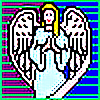HOME | DD
 KiRAWRa — The Truth About Selling Fanart
KiRAWRa — The Truth About Selling Fanart
Published: 2011-06-10 20:40:48 +0000 UTC; Views: 206868; Favourites: 775; Downloads: 66
Redirect to original
Description
Update notice as of January 17, 2013: I have given this guide a MAJOR overhaul. It was originally written over a year and a half ago, and since then my own views and understanding of copyrights has changed. I felt that this guide should reflect those changes, so if you read this guide in the past, please take a moment to look through it again as I have added MANY new topics, information, and sources. Unlike my first draft, I have also changed my viewpoint to neutral throughout this writing.Update notice as of July 17th, 2015: Check out DeviantArt's new article on art theft, fanart, copyrights, and other relevant topics! protectart.deviantart.com/jour…
Update notice as of January 19th, 2019: Very small language adjustments to reduce the accusatory tone. Clarified statements that previously implied verdicts of illegality (example: statements such as "this is illegal" have been modified to "this is potentially infringing").
Disclaimer: I am not a lawyer, nor any kind of professional that works in dealing with laws or copyrights. This guide was written based on my own research and understanding of copyright laws, and from discussions with others knowledgeable of the subject. These facts are all sourced from U.S. law. I encourage others to do their own research and draw informed conclusions on how they would like to pursue the issue of selling fanart.
The Truth About Selling Fanart
Fanart is something you undoubtedly encounter on a daily basis while browsing the internet, Deviantart, and similar websites. We are all a fan of something, and "fanart" can be a great way for artists to explore artistically and bring fans together.
Fanart can be a tricky thing though, especially when it comes to selling it. There are so many artists out there that sell art of copyrighted material that it can be easy to get lost in the cloud of misinformation. This guide hopes to enlighten you to the truths and falsities about selling and commissioning fanart.
What is "Fanart"?
Fanart is a piece of art that contains a character, name, logo, setting, or any other content that is not owned by you (referred to as a "third party"). The third party content could be from a book, movie, cartoon, TV show, another artist, or a menagerie of other things. For example, if you like Harry Potter and decide to draw a picture of him playing Quidditch, this would be considered a fanart.
In reality, "fanart" is a very vague term, which is why it is often hard to find solid information about it. Most fanart is, in legal terms, what you would call "derivative" art. There are many different kinds of fanart, and many different kinds of derivative art. A piece of fanart may fit into one or many of the following categories:
• Derivative Works
Derivative works are created when an original work has been modified, creating a new artwork. A minimal amount of creative effort must be applied to an original work in order to consider it derivative, otherwise it is just a copy. Only copyright holders and those with permission granted to them by the copyright holder have permission to create derivative works based on the original.
Copyright for derivative works applies only to the creativity that has been added to the original. For example, let's say you draw some fanart of Pikachu from Pokemon. You didn't use any of Nintendo's official Pikachu art in your drawing, and you interpreted Pikachu into your own unique style. This fanart counts as a derivative work instead of a copy, because you have made significant creative changes to the original character. This means that the fanart you have drawn is copyrighted to you. However, you did not create Pikachu and so you do not own the copyrights to Pikachu used in your drawing. Technically speaking, this means the very existence of your fanart is infringing on copyrights, because you have used a character that you do not own and do not have permission to use. More so, this also means the selling and reproduction of this fanart would further infringe on Nintendo's copyrights.
Now that I've sufficiently frightened you, know that there is an exception to these laws of copyright, known as "Fair Use", which will be discussed more later on.
---
More info on derivative works: en.wikipedia.org/wiki/Derivati…
Understanding derivative works under copyright law: www.legalzoom.com/intellectual…
Very useful Q&A about derivative works: chillingeffects.org/derivative…
---
• Parodies
Parody works, also referred to as "Spoofs" or "Satire", are derivative works that focus on humor. They are meant to make fun of something in a comical way, usually focusing on plot holes, character flaws, or other imperfections in the subject matter. Many parody works can be sold successfully even though they share very close similarities with what they are making fun of, since parody works do not include heavy amounts of official copyrighted names, logos, characters, etc, or directly copy the source material (as this would become infringement). Parody is not to be confused with Slander, which focuses only on negative views and aims to humiliate or damage the reputation of the third party.
---
More info on parodies: en.wikipedia.org/wiki/Parody
Tips for creating a successful parody: www.lfiplaw.com/articles/trade…
---
• Plagiarism
Plagiarism, also called "copying" or "tracing" when referring to drawn works, is the act of using third party content without adding any creativity of your own, and/or using material without credit to the original artist or copyright holder. Plagiarism is a form of copyright infringement; it is not considered a derivative work and is not protected by the fair use claim.
• Transformativeness
Most fanart is claimed to fall into this category. A transformative work (also known as "Adapted") is used to describe a work that has been changed and represented in a new way. Art may be considered transformative if it adds value to the original, or provides new insights and information that was not included with the original work. For example, a book review would be considered transformative. Since it would be very difficult to write a book review without including some of the book's original content, it becomes a transformative work when you add your own creative views and understanding to the original material. Parodies may also be considered transformative.
---
More info on transformative works: en.wikipedia.org/wiki/Transfor…
---
Fair Use
"Fair use" is a claim against copyright infringement when a derivative work has been created without the permission of the copyright holder. Fair use usually refers to journalism, education, and research, but other unique cases have been ruled under fair use as well. Because fanart is so varied, fair use claims are judged on a case-by-case basis. Parodies are widely accepted as being protected under fair use, but it is in your best interest to carefully judge the criteria and determine whether or not your fanart might fall under the protection of fair use. Because even personal uses for derivative work may not be protected by fair use, you should take extra care when considering selling fanart for profit.
Fair use claims are judged in four factors, as follows:
• The purpose and character of the use, including whether such use is of a commercial nature or is for nonprofit educational purposes;
• The nature of the copyrighted work;
• The amount and substantiality of the portion used in relation to the copyrighted work as a whole; and
• The effect upon the potential market for or value of the copyrighted work.
While profiting from derivative works is not a deciding factor, it usually weighs heavily against fair use claims. Until your fanart has been judged by a court of law and is found to meet criteria of being protected under fair use, you can assume that selling it without permission is infringing on copyrights.
---
More info on fair use: en.wikipedia.org/wiki/Fair_use
Helpful guide on how to judge your work under fair use: publishing.wsu.edu/copyright/f…
---
The "Gray Area"
The "Gentleman's Agreement"
The "Unspoken Rule"
Many who create and sell fanart often mention the "Unspoken Rule". This is in reference to the idea that even though selling fanart without permission is illegal and can be morally objectionable, there is very little chance that any legal actions will actually be taken against you. Fanart is often said to rest in a "gray area" of copyright law because even though it is technically infringing on copyrights, the intent is usually not to harm the copyright holder, but rather to honor or pay homage to them.
Generally, the distribution of fanart is seen as a good thing that promotes interest and "free advertising". In most cases, the benefits of the creation of fanart far outweighs the negatives for both fans and copyright holders, who would make an awfully bad name for themselves if they began attacking their own fans on grounds of copyright infringement.
The act of selling fanart without permission however, is where complications arise. Basically, you are making a profit from content that you do not have the licenses to use. Paying homage to the creator of something is different than encroaching on their market. Not only does it hurt the copyright holder, but it hurts other artists as well. An artist who chooses not to illegally sell fanart can easily lose customers to someone who does choose to sell fanart illegally. It is easy to sell fanart because it contains characters and content that already has a pre-existing fanbase. This can make it very difficult for artists to sell original work and learn to support themselves artistically.
Selling fanart without permission can also give you a "bad business" record. While naïve young fans and artists may be ready to commission and sell fanart, professional businessmen, companies, and experienced artists will not buy from someone who does not take copyright infringement seriously.
Do not be surprised that some people look down very harshly on those that profit from fanart. Others also feel that selling fanart for a profit "takes away from the spirit of fanart". In many cases, people have been publicly humiliated or booted out of conventions for having mass produced prints and fanart commissions.
Cease and Desist
An undeniable risk of selling derivative works is getting in trouble with the law. Remember that as long as your work contains content from a third party, the copyright holder has full legal rights to take action against your profiting from – or creation of – that fanart if they so desire.
While the copyright holder does not have the authority to take ownership of and do what they please with your fanart, the truth is neither do you! If the copyright holder wishes for you to stop profiting from their material, their most likely plan of action will result in a "Cease and desist" order. This order calls for the recipient to "cease" their dealings, and "desist" from doing them again. If the undesired activity continues, a civil lawsuit could result. Similarly, "demand" letters may also call for monetary compensation.
Some copyright holders and companies are known to be quite aggressive over copyright infringement, and the last thing any artist wants is to become the poster child of corporate wrath.
Your fanart is more at risk if:
• It uses official art, logos, or content not solely created by you
• It depicts characters or content in a deformative, sexual, slanderous, or otherwise "unflattering" light
• It has little or no difference from the original works
• It does not have a parody influence
• You sell a high number of commissions or prints
• It caters to the same market as the copyright holder
---
More info on Cease and desist orders: en.wikipedia.org/wiki/Cease_an…
---
Taking a Stand
If you see an artist profiting from fanart that you believe they don't have permission to sell:
• Do not buy art of third party content from them.
• Let them know that what they are doing may be infringing and it bothers you.
• Tell them that you will not buy art from them if they continue to sell fanart without permission, and that you will encourage others to do the same.
• Inform the copyright holder that someone is profiting from their copyrighted material.
Keep in mind that many people simply do not realize what they are doing may be infringing, due to the large amount of misinformation surrounding fanart and convention spaces. Always remember to be polite, direct, and informative when contacting someone. Never use insults or jump to unnecessary conclusions.
The Safest Route
If you are truly intent on selling fanart, and want to do it in a respectable and legal fashion without risk of backlash or infringement troubles, the safest route is to obtain permission from the copyright holder. Some content is owned by multiple people, or has different copyrights for different versions, so it is very important to do your research on who-owns-what. When requesting for use of third party content, be advised that correspondence could take quite a long time. Some copyright holders respond right away, while others are big, busy companies. It is best to plan months in advance before trying to sell any fanart at upcoming conventions or events.
Copyright holders may ask you for specific information about what you intend to sell, where you intend to sell it, and for how long or how many copies. They may even ask you for a percentage of your profits or a fee for using their content.
---
Guide to requesting permission: copyright.columbia.edu/copyrig…
Guide to locating copyrights: norman.hrc.utexas.edu/watch/us…
Info on obtaining permission: www.copylaw.com/new_articles/p…
---
Alternatives and Work-Arounds
If you still wish to distribute fanart but don't want to hassle with permissions, and also don't want to risk infringing on copyrights, there are some other options available to you:
• 501(c) Donations
Fanart and derivative works can be sold for profit as long as all proceeds are donated to a 501(c) organization, otherwise known as a "non-profit" organization.
• Bonus/Free Fanart
One way to distribute fanart freely is to offer it as a bonus to non-fanart commissions or purchases. Some artists offer a free choice of small items like pins, keychains, or stickers featuring third party characters with the purchase of an original work. This encourages the selling of an artist's original work, while still satisfying the customer's desire for fanart.
• Art Trades
The trading of artwork instead of money is a great alternative. Both artists get a fair exchange and because the dealing is not about monetary profit, it is okay to request fanart drawings.
Other non-issues:
• Cosplay
Creating costumes and accessories for personal use is considered another form of fanart, and does not pose any more of a threat to copyright infringement than the other mediums do.
• Fan Characters
Original characters inspired by a particular franchise are not considered derivative works, but original works, as long as the fan character does not contain any third party copyrighted content like names, logos, outfits, etc.
Parting Statements
In conclusion, the selling of (and even creation of) fanart is a very tricky subject with a diverse array of outcomes. It is common knowledge that profiting from fanart without permission is greatly overlooked, which only fosters the belief that buying and selling it in this possibly infringing manner is okay. Even if the practice is widespread and easy to get away with, be aware of the fact that you are profiting without the specific legal permissions to do so.
Also keep in mind that only the copyright holder or the ruling in a court of law can officially determine whether or not your derivative art is protected under the fair use defense. Most people don't have the time or money to fight legal battles if they are ever challenged however, which is why being granted permission from the copyright holder is the best and safest option for your fanart-selling endeavors.
Many artists out there are able to create admirable fanart pieces, but there will never be anything as beautiful, inspiring, creative, or imaginative as originality!
---
Sources/Further Reading:
• Copyright Laws of the United States
• VERY informative video of Josh Wattles, legal advisor of dA: youtu.be/xKBsTUjd910
• DeviantArt's fanart policy: help.deviantart.com/743/
• More info on fan art: en.wikipedia.org/wiki/Fan_art
• Info on fan labor: en.wikipedia.org/wiki/Fan_labo…
• Info on copyright infringement: en.wikipedia.org/wiki/Copyrigh…
• The Organization for Transformative Works on Wikipedia: en.wikipedia.org/wiki/Organiza…
• Official website for the OTW: transformativeworks.org/
• An explanation of copyrights and fanart: lexxercise.tumblr.com/post/596…
• A forum discussion on the selling of fanart: www.digitalwebbing.com/forums/…
• A forum discussion on law and ethics of selling fanart: www.sweatdrop.com/forum/showth…
• Article about fanart and the Unspoken Rule: www.plagiarismtoday.com/2010/0…
• Personal account and tips for selling fanart: www.theotaku.com/fanwords/view…
• A guide on copyrights for fanfiction authors: www.whoosh.org/issue25/lee1.ht…
• The difference between Trademarks, Copyrights, and Patents: www.lawmart.com/forms/differen…
Related content
Comments: 763

👍: 0 ⏩: 0

👍: 0 ⏩: 1

👍: 0 ⏩: 0

Hey! Thank you for the resource and the time you have dedicated to this!
I also have a question: what if you draw your own version of a story, for example Alice in Wonderland, based on the description of the characters from the books and your own imagination? Is that also potentially infringing? I refer here to the case you use those drawing for commercial use on different objects.
Thank you and have a great day!
👍: 0 ⏩: 1

No problem, thanks for reading!
It has the potential to still be infringing, especially if you are using names from the book like characters and scenarios. Though this sounds like you'd be adding a lot of your own interpretations and creativity and the more of your own ideas and content you add, the lest risk you have of getting into trouble c;
Specifically though - Alice's Adventures in Wonderland, the original book - has become public domain, so you may use anything from it freely.
👍: 1 ⏩: 0

Just wanted to say i feel the same. These fanart sellers are out of control. Whenever i mention on their profiles it's illigal, i get attacked for being jelous. I hope they will get discovered by the big companies someday and pay for their actions. DA won't move a finger to get them banned, they get money from it aswell if comissioners pay with 
👍: 0 ⏩: 0

Thank you for reading, I'm glad you found this resource helpful!
Something you may want to keep in mind is that the selling of fanart is a great big "gray area" that defies a strict definition of being either legal or illegal. The laws surrounding copyright are purposefully written to be flexible, so it usually comes down to a case-by-case basis on whether the infringed party feels like taking action or not.
Most people feel quite safe drawing and selling fanart and fanworks, but the more infringement an artist commits, the bigger a target they begin to paint on their back.
The artist you describe sounds like they're playing quite a risky game.
I understand it is very hard to compete with artists who mass produce fanart commissions, and I'm sorry to hear about your struggles with this person.
In regards to DeviantArt hosting the fanart, they aren't actually liable for the activity or content that may be taking place. It's a very common TOS clause that you will find on any website that hosts user-generated content.
Unfortunately, you reporting anything to DA under the pretense of "illegally selling fanart" won't yield much result, because only the owner of the 3rd party content can determine what is infringing or not. Your best bet would be to contact the actual companies or owners of the fan content. They may have an American or English-speaking office branch of the company you can contact. The owners would be the only ones who can take action against infringement if they deem it bad enough to do so.
If you want to contact the artist or any of their followers, I agree that you are most likely going to be ignored or blocked, even if you are as polite as possible. No one who makes that amount of money with such a strong following would be willing to change their ways from a stranger unaffiliated with the copyright holder telling them it's wrong. I'm sure they are already aware of the thin line they are walking and have chosen to take the risk.
👍: 0 ⏩: 0

I wished more people thought like this. In the Netherlands, I am pretty much the only one who says this. Someone else says it too, but I wonder if she stays true when in a pinch. All in all, 2 artists in the entire dutch artist alley scene think like you. They all say I am overreacting. Fun fact: some of the biggest fanart sellers are graduated art students. You'd think they'd know better....
👍: 0 ⏩: 1

Fanart is such a difficult topic to navigate and concrete information is scarce! Thank you for trying to do some research and giving this a read!
👍: 0 ⏩: 1

I've been saying selling fanart is against the law for over 10 years now. Seldom have I found a 'kindred soul' who thinks the same. I had a blast reading it and will redirect people to this article. Maybe they will accept from someone else what I've been saying for years now.
👍: 0 ⏩: 0

i've heard it's copyright infringement to sell fanart, but what about fanart of a fan character you created? The characters are based off of a copyrighted franchise, but someone else made them. Is it still copyright infringement to sell them?
👍: 0 ⏩: 1

I can't say with any certainty what is or isn't allowed, but the amount of added content and creativity does play a big part. If you feel that your fan characters (and art of those fan characters) are far enough removed from the original content, you may have added enough creativity to say your characters are original enough to sell.
👍: 0 ⏩: 1

Thank you for the answer, it's really helpful ^-^
👍: 0 ⏩: 0

so i had alot of phineas and ferb vore on my profile page but like i searched phineas and ferb vore on bing and i found alot of people staeal9g my artwork. i like worked super hard on my art vore than i got really mad and pekkkooekosadjasfidsagijaidsjasndg
👍: 0 ⏩: 0

So, i dont believe ive read it yet up here, but i did my own investigating, and in order to use a copywrited material, without trying to go through all the hoops and time wasting, you can go to your city hall, where you plan on selling copywrited artwork, and buy the copywrite to use on that name of characters, for $50. they told me its not a long process, but i had to sell a piece of artwork to someone with a logo, and so i checked copywrites on it, and i was told the same thing, so i went through the loops and the law states that you can sell fan art and even their version and your version of that specific artwork, for $50. so, its possible, just a bit pricey if you plan on doing alot of different anime or comic type things for selling. hope this information helps!
👍: 0 ⏩: 2

Is there a legal term for purchasing the use of the characters? I would like to check if my country have the same process. By the way, if it's selling in another country, do you know how will the process apply?
👍: 0 ⏩: 0

I have never heard of that before, that's really interesting and handy! Definitely requires more research, but I'm going to feature your comment as an option for others to potentially look into.
👍: 0 ⏩: 1

Awsome, thank you. Yeah I was doing a piece that had a universitys logo and when i went to get my piece blown up for printing they told me i cant sell it without consent of the copyright. they told me who to call and I called and they gave me all that information at city hall. based on where you are selling, you need the consent from that city to sell it. so you would be paying per ity if you plan on travelling and selling. but if you just plan on doing at conventions in your city alone then no need to pay for consent at other cities.
👍: 0 ⏩: 1

Very useful information, thank you for sharing!
👍: 0 ⏩: 0

It's NOT LEGAL to sell fanarts unless you have a permission from the owners of copyrights. There is no "it depends", "only if" or "just be careful".
👍: 0 ⏩: 0

kittydogcrystal www.amazon.com/Multicolor-Wire…
👍: 0 ⏩: 0

It is good to know. I am currently drawing superhero fanart. One being Deadpool another being Black Panther. I think I will just give them to friends for free. Otherwise I might deal with copyright laws.
👍: 0 ⏩: 0

I got a question. Sorry if I sound dumb
Can you get in trouble for taking an idea that exists already and merging it with your own idea and then patents as your logo?
Example: A charter from One Piece name Zoro and a pet pug (Make the pug have similar features such as the scar on his right eye, green hair, and earing.)
👍: 0 ⏩: 2

"When in doubt. . .Don't!"
👍: 0 ⏩: 0

Unfortunately there's no real way for anyone to be able to answer this. The usage and legality of taking features from a third-party character would be completely up to the owner(s) of that character. I would stay away from anything that would clearly imply you've taken features from something as well-known and One Piece though, especially if you're going to go down the route of patents, which is very expensive and a lot of legal paperwork to register as well as working with attorneys.
That's not to say you aren't allowed to make a character with scars and green hair and an earring, but the stakes get quite a lot higher when you move in the direction of profiting from derivative content, and exponentially higher when you start registering expensive trademarks (and I DO mean expensive, the application fee can be $5,000 and up). You don't want to be tossing that kind of money around on something that could potentially get flagged by the copyright owners of One Piece.
👍: 0 ⏩: 0

This is so hard since conventions are filled with fanart selling people. And fanart is the easiest way to make a profit. Unless you've made a comic series with a relative fanbase (or have one online from your art) you selling original art has little chance to gain a profit with. I'm having an internal fight with this
👍: 0 ⏩: 1

Even after all these years I still have the internal conflict about whether or not to buy from/support fanart convention artists. It's a convoluted topic to say the least, and unfortunately there's no true answer to whether it's good or bad. In my personal opinion, I don't think there's anything wrong with supporting an artist if you like their style and what they draw. I think the most important thing to consider is whether the artist is a fan of what they're drawing and just wants to make some cash to support it, or if they're mass-producing fanart pieces purely to make bank because they know it'll sell.
👍: 0 ⏩: 0

Humm... looks like my project just got a lot more complicated.
👍: 0 ⏩: 0

That is really interesting!
Thanks for creating this!
👍: 0 ⏩: 1

no problem, thanks for reading! <3
👍: 0 ⏩: 0

Thank you so much for writing this and still be actively helping people in the comments! I know you're not an expert, but I do have a question. I read a lot about fanart being art containing a character, but what about an actual person like a celebrity?
I make minimalistic art (linework) of celebrities in which I always use a picture for inspiration. I would like to sell my fanart, but of course I don't wish to do it illegally.
Thank you in advance for your opinion on this, I really appreciate it.
👍: 0 ⏩: 1

People are generally copyrighted to themselves. So if you wanted to sell artwork of a real person, you'd go about asking that person for permission. HOWEVER, if you're referencing a picture of a celebrity like an actor, and the photo is from a production like a show or movie, then the ownership of that picture is then copyrighted to the franchise owner instead of the actor.
👍: 0 ⏩: 0

So for example back in the day there were those gangster dolmation dog parody shirts of almost every cartoon imaginable. Or the graffiti style looney toons characters and disney characters for example?
Or say Nuri Durr’s Hey Arnold characters reimagined as adults?
Those are considered creative adaptations right?
👍: 0 ⏩: 1

There are a fair number of organizations that support reinterpretations of characters and content as being protected under fair use, but it's really up to you what you consider "safe" to do.
👍: 0 ⏩: 1

Ok, thanks! I’ll keep that in mind.
👍: 0 ⏩: 0

no problem I hope you found it useful! c:
👍: 0 ⏩: 1

I really did!!! Very informative! \^D^/
👍: 0 ⏩: 0

if i were to sell commissions containing drawings of a copyrighted character, would that be an infringement? sorry if this was already mentioned, but it still isnt clear for me.
👍: 0 ⏩: 1

Since I am not the legal owner of those copyrighted characters, nor am I a professional in copyright law, it would be impossible for me to tell you definitively what is infringement or not. All I can say is that you probably run a small chance of actually getting in trouble if you did decide to sell, depending on what franchise these characters are from.
👍: 0 ⏩: 1

okay, thank you so much! that helps clear things up a little!
👍: 0 ⏩: 0

I've drawn musical characters as cats.. i also drew the logo's of musicals that contained humans but with cats..
So, i bassicly drew cartoon cats but they still are clearly the musical characters.
Is it legal to upload and sell this in redbubble?
👍: 0 ⏩: 1

I'm not the legal owner of any of those franchises nor am I a professional in copyright law, so it would be impossible for me to tell you what is legal or not. All I can really say is that you probably have a low chance of actually getting in trouble if you did decide to sell it.
👍: 0 ⏩: 0

If someone is selling cosplay items that is also illegal right? Or accessories of a show, video game, anime?
👍: 0 ⏩: 1

Yes, in this case "fanart" refers to any creative medium, not just a drawing. It could be clothing, sculpture, etc
👍: 0 ⏩: 1

I wonder why people still sell them...
👍: 0 ⏩: 1

People do not know that it is illegal to do usually.
👍: 0 ⏩: 0

[Looks at the part about Slander] Wouldn't it be libel if it's in the written word (assuming it's fan art and not a fan film)?
👍: 0 ⏩: 1
| Next =>










